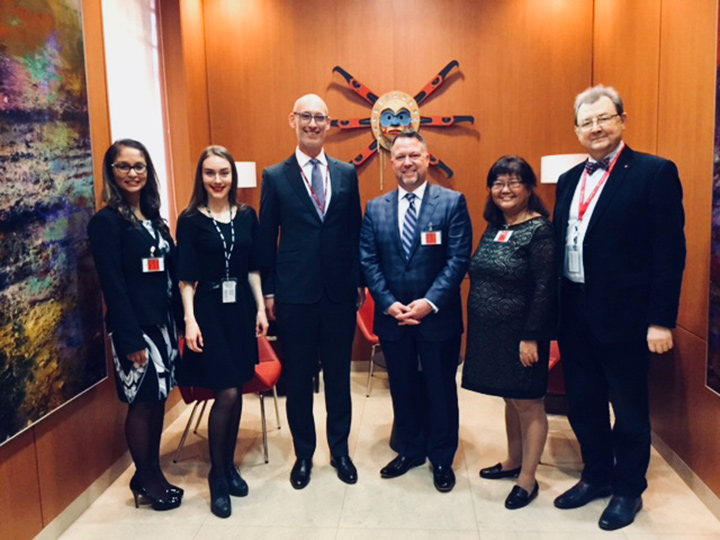The world’s oil and gas industry beats a path to SAIT
Visit ExxonMobil’s liquefied natural gas plant in Luanda, Angola, and there’s a good chance you’ll bump into some of the dozens of locals with a petroleum technology certificate from the Southern Alberta Institute of Technology (SAIT).
ExxonMobil has been working with the Calgary-based college for over a decade, regularly sending groups of about a dozen Angolan employees to Canada. The U.S. energy giant is just one of a growing number of energy companies and government agencies around the world that have hired SAIT to upgrade their workers’ skills, often using custom-designed curriculums.

Some, like ExxonMobil, send their workers to Calgary. Others, like Naftogaz, Ukraine’s national oil and gas company, have invited SAIT’s experts to come to them to implement training programs. SAIT is working with two universities in Ukraine to design courses of interest to Naftogaz. The project ranges from compiling an inventory of laboratory equipment needed for the courses to designing curriculums and training local instructors.
SAIT’s aim in such contracts is to sign licensing agreements that produce a steady revenue stream and cement long-term relationships. It recently wound down a five-year training project in Kazakhstan and is currently pursuing deals in Africa, central Asia, South America and Mexico.
Of more than 14,000 students, over 1,600 students from 94 countries attended SAIT, in 64 different programs, in 2017/18. Like many other Canadian colleges and universities, however, SAIT is increasingly looking for other ways of reaping the benefits from the worldwide surge in cross-border education.
“Almost all post-secondary institutions are developing revenue streams other than government grants and tuition from individual students,” says Craig Hess, who heads SAIT’s 10-strong business development team.
“What’s more,” he adds, “our philosophy is that we don’t necessarily want to create bricks and mortar in other locations around the world. We believe it’s incumbent on us to help others develop that capacity within their own nations. That does well to boost SAIT’s reputation and its standing in the international community.”
SAIT is also seeking to diversify beyond the oil and gas industry. Using its expertise in aircraft maintenance and avionics training, for example, it recently signed a contract with Thailand’s Civil Aviation Training Center. “Potentially we could take any of the curriculums that we have here and go work in other nations,” Hess says.
The Canadian Trade Commissioner Service (TCS) has played an “important role in smoothing SAIT’s entry to Ukraine,” Hess says, “from the simplest things like getting us around the city, to connecting us with the Canadian ambassador. As we’ve gone through the project, they’ve been fantastic with boots-on-the-ground intelligence and carrying on occasional meetings with Naftogaz. The TCS team sees the potential in this, and they’ve worked very hard to help SAIT navigate the landscape there and to manage some of the more delicate requests that come from Naftogaz.”
- Date Modified:
